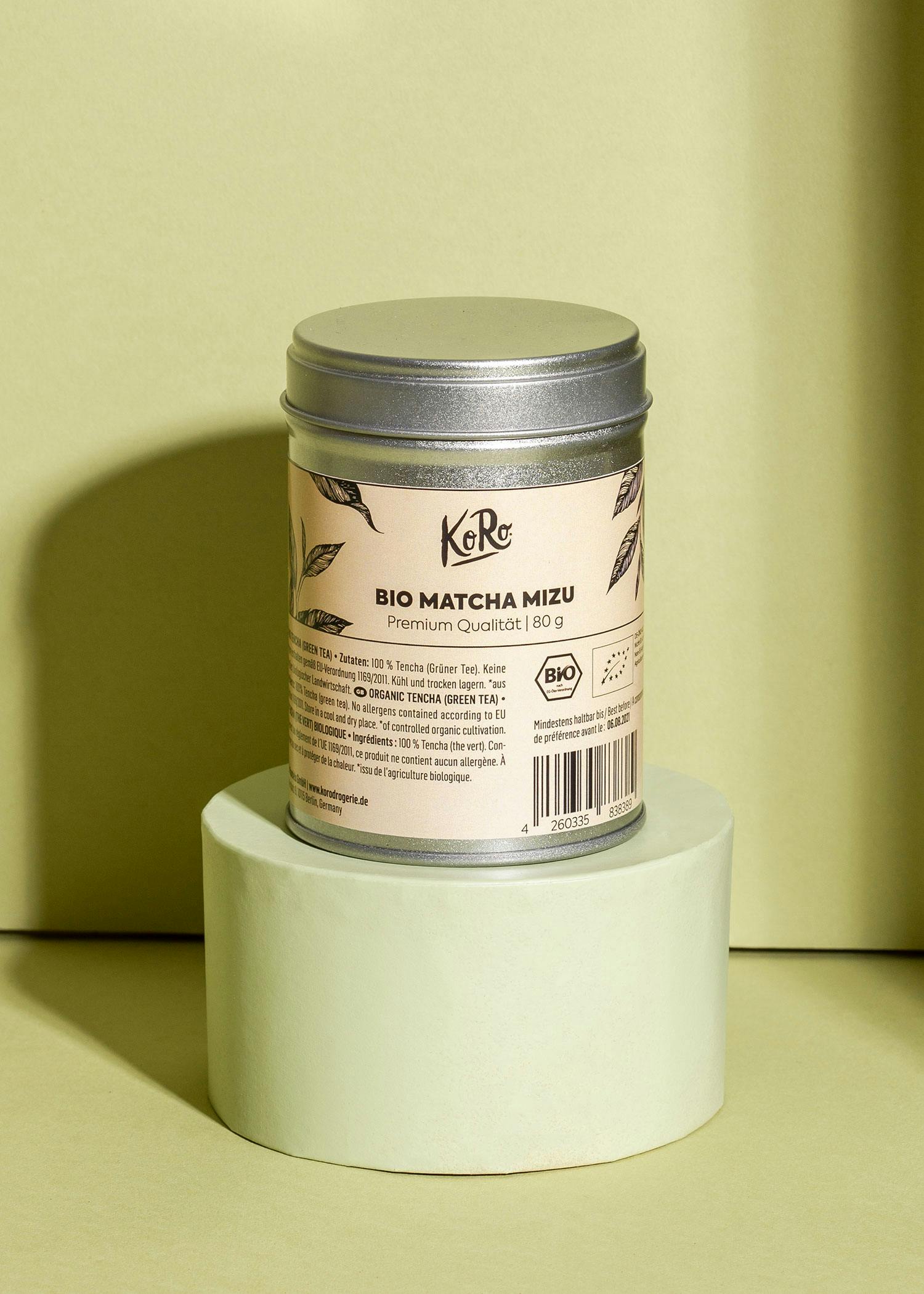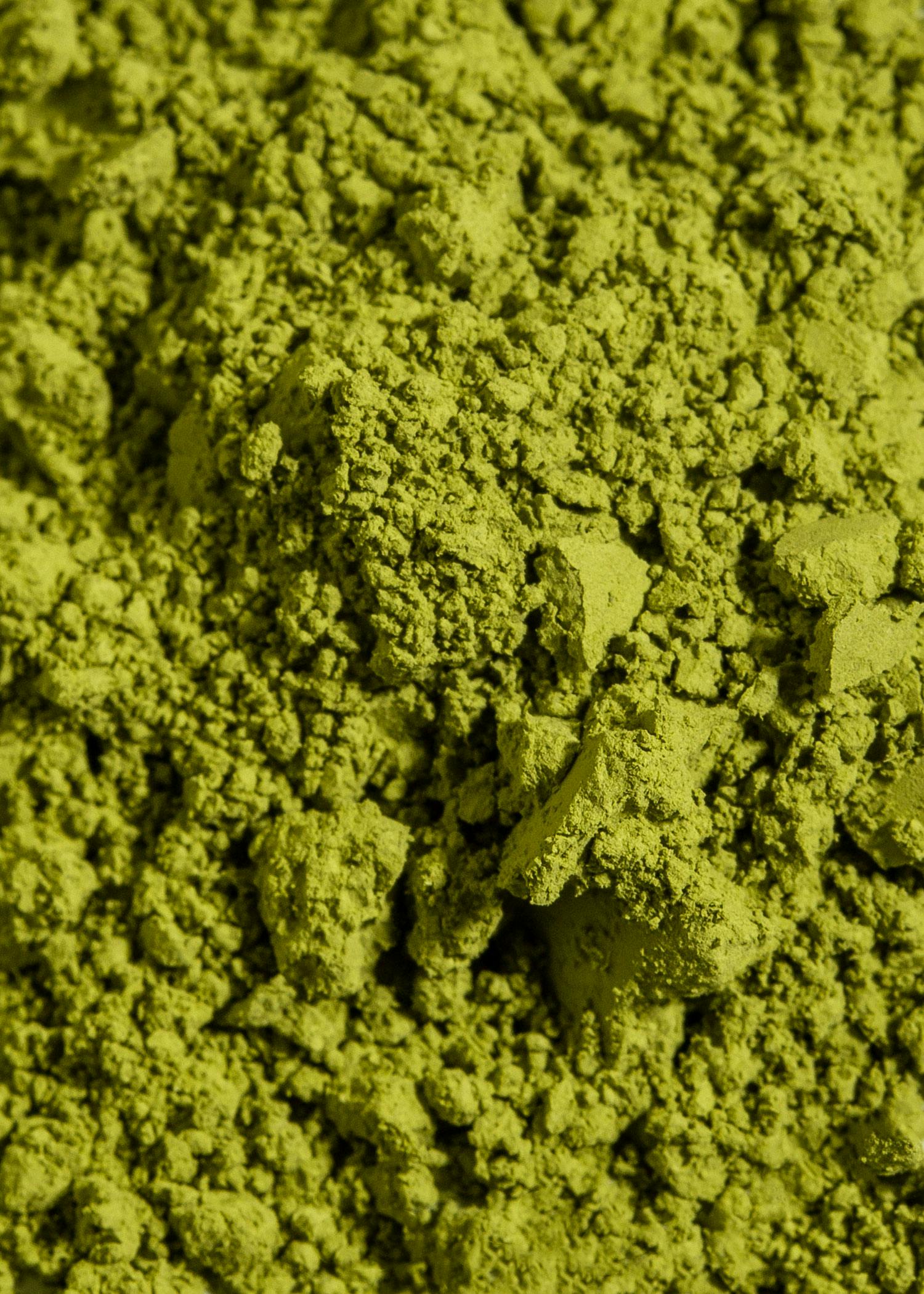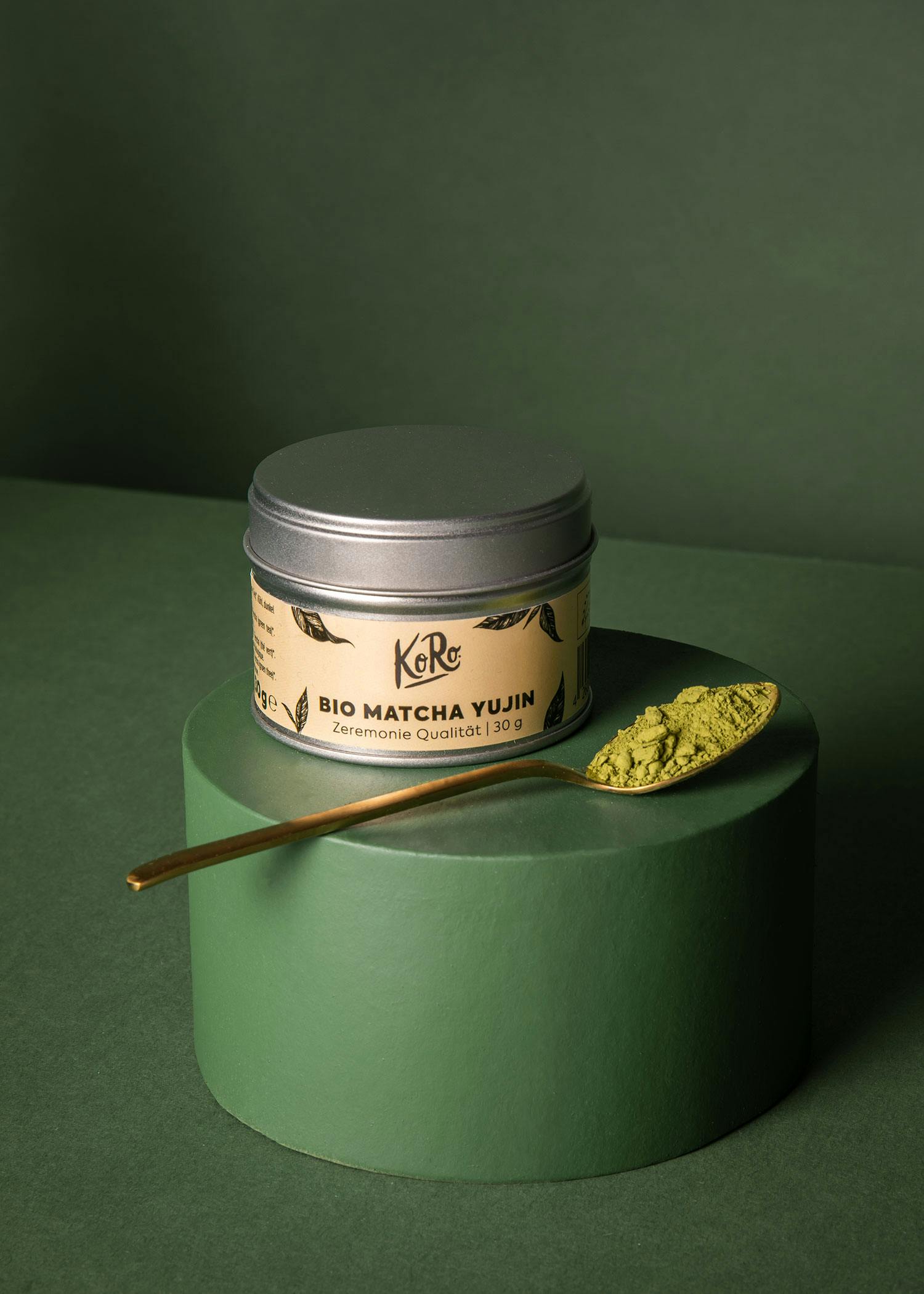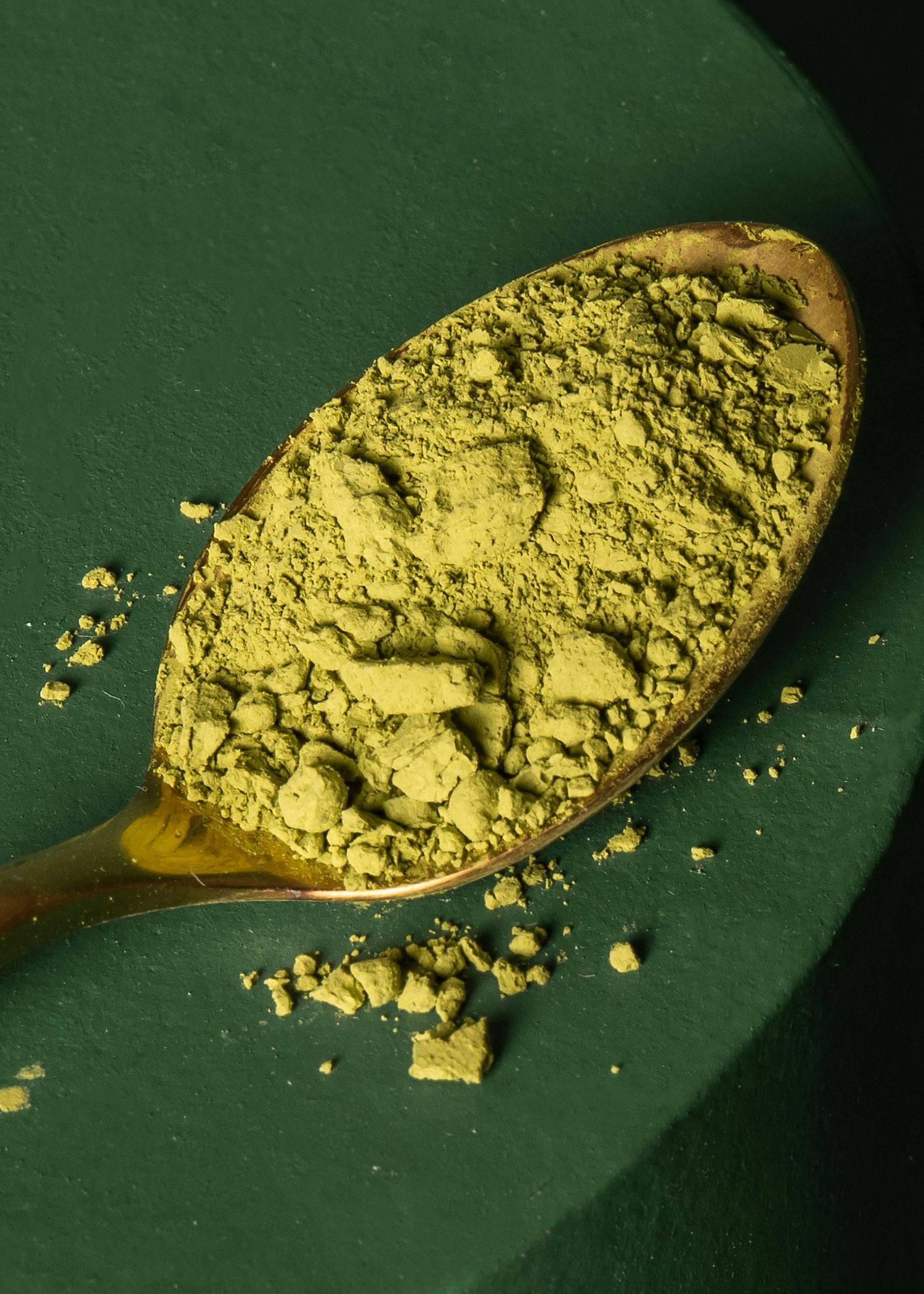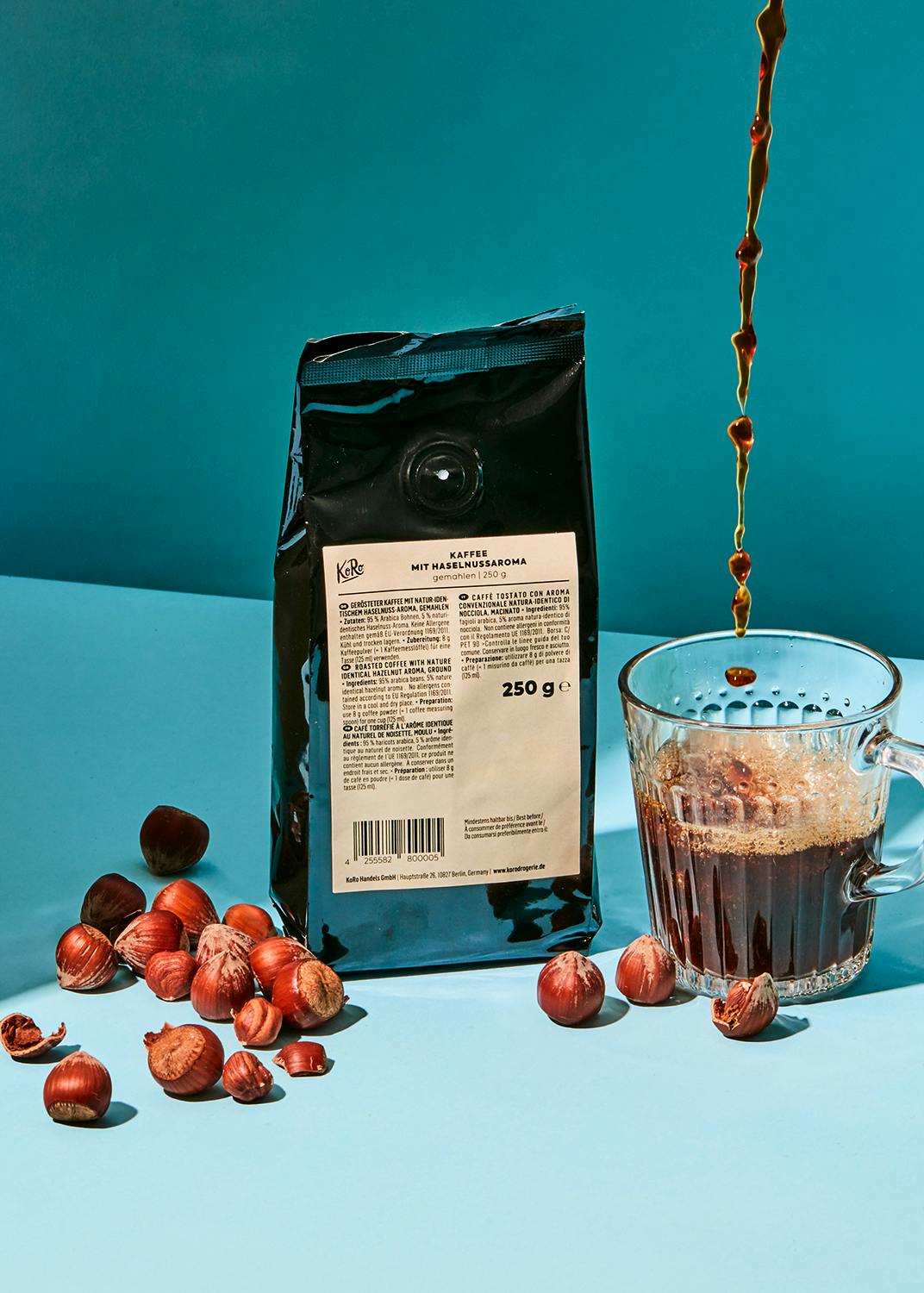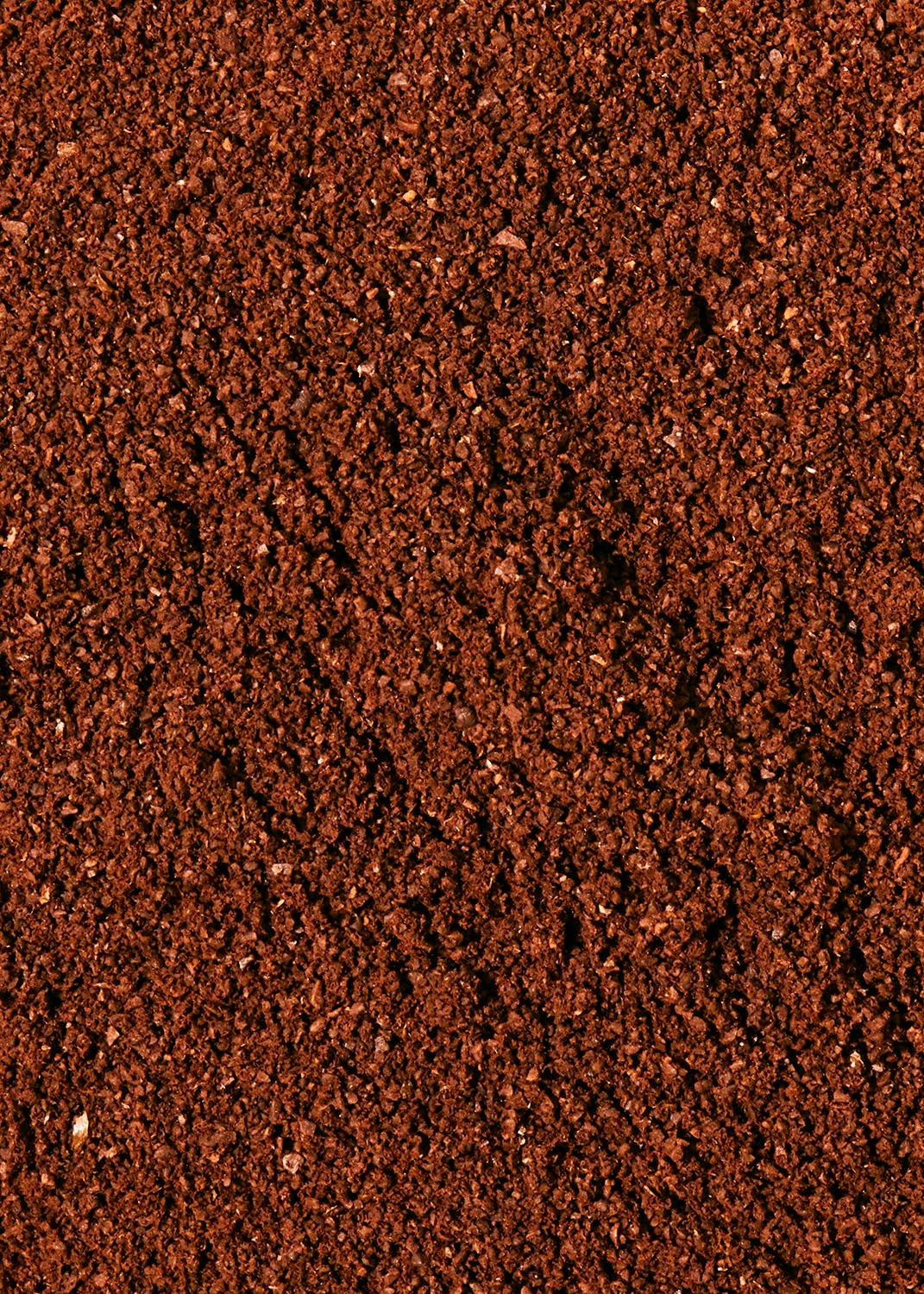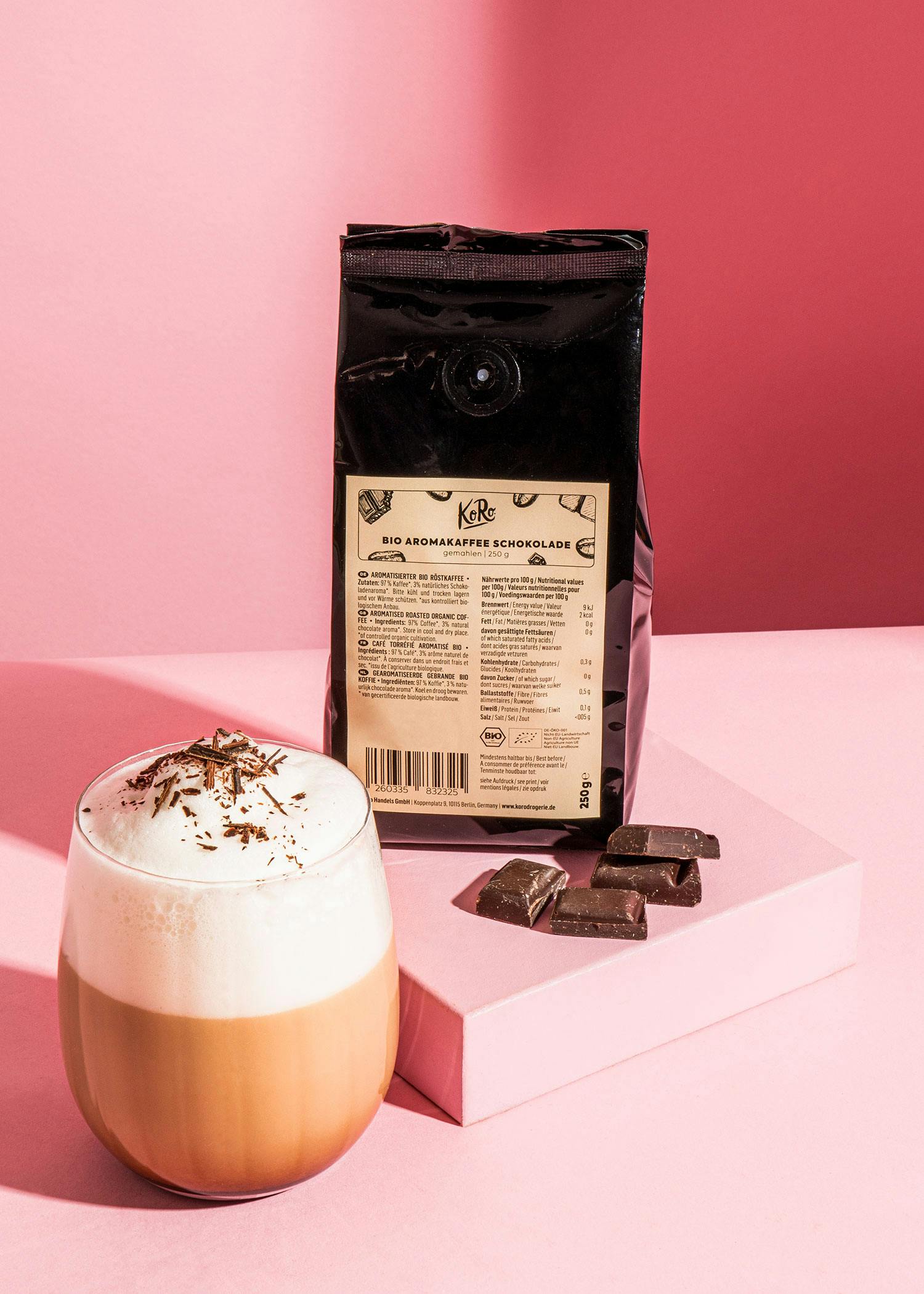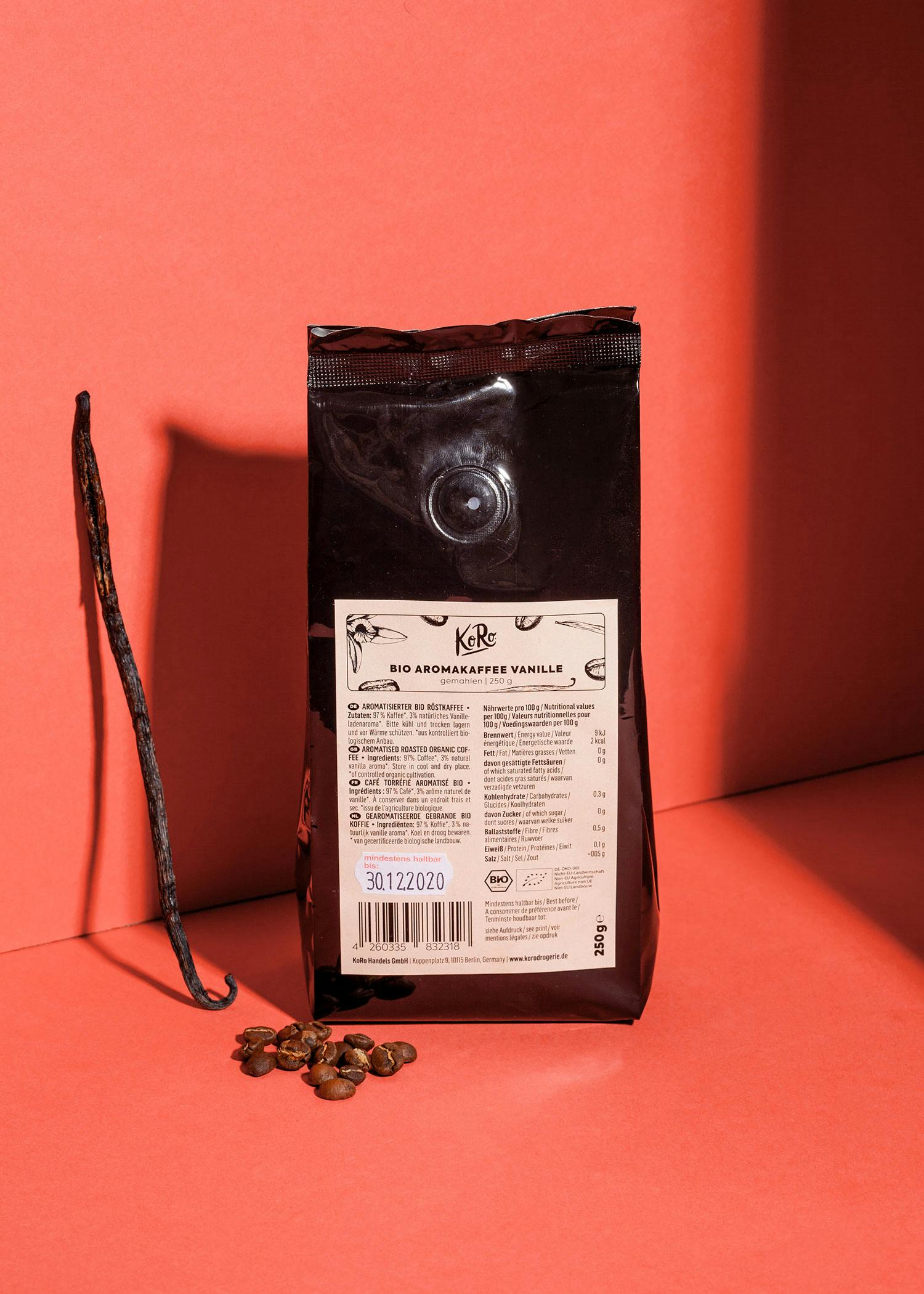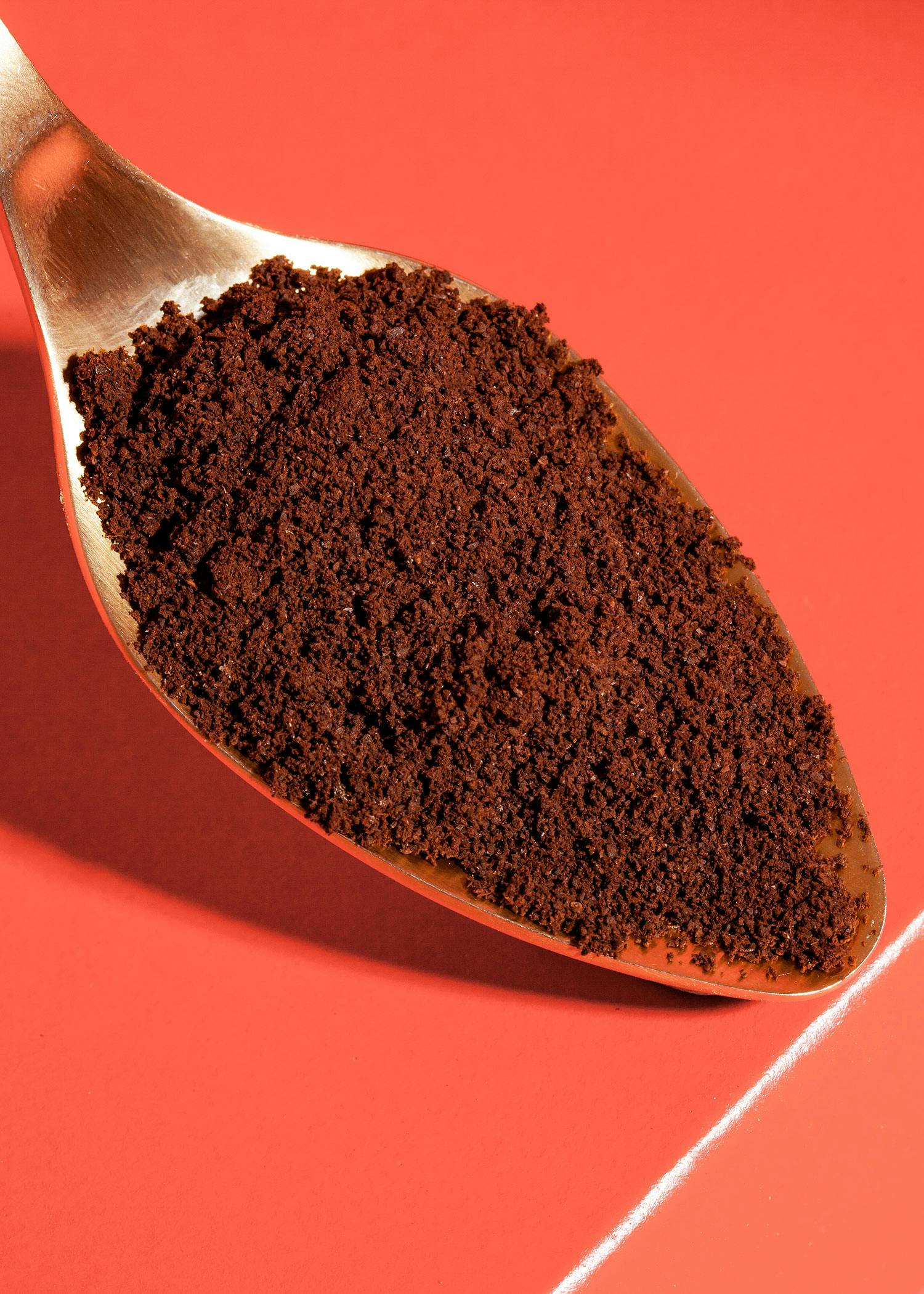Origin & Varieties
Matcha is a finely ground green tea that traditionally comes from Japan but is now also cultivated in China. In Europe, the selection is still quite limited and can generally be divided into two main types:
Culinary Matcha: Strong and earthy, perfect for baking, cooking, desserts, or even as a seasoning – though a bit too intense for most to drink pure.
Drinking Matcha: Milder and more balanced in flavour, ideal for classic matcha tea or a creamy matcha latte.
Coffee, on the other hand, is made from roasted and ground coffee beans. It’s grown across the world, especially in Africa and South America. Thanks to its long-standing tradition, coffee offers a huge variety of blends, roast levels, and flavour profiles – from mild and nutty to bold and chocolatey.
Taste & Preparation
Matcha has a sweet to bitter, slightly earthy taste that many describe as smooth and creamy. To prepare it traditionally, whisk the powder using a bamboo matcha whisk until it’s frothy – this helps prevent clumps and ensures a silky texture.
If the pure flavour feels too strong, simply add oat drink or another plant-based drink to make a creamy matcha latte. The vibrant green colour also makes it a visual treat. For something a bit different, try a Mango Matcha Latte (sweet, tropical twist) or a Strawberry Cloud Matcha, where creamy matcha meets fruity strawberry purée.
Coffee, by contrast, is a familiar favourite with a wide range of flavours – from light and nutty to strong and bitter. Preparation options are endless: black, with milk or plant-based drinks, enhanced with cocoa, or sweetened with coconut blossom sugar or xylitol. From espresso to cappuccino, coffee easily becomes a daily ritual. For a nutty delight, try a Creamy Hazelnut Latte, where coffee and nutty sweetness blend beautifully.
Caffeine Content: Matcha vs Coffee
Matcha contains around 60–70 mg of caffeine per 1 gram of powder. The total caffeine in your drink depends on how much powder you use.
Coffee typically contains 95–120 mg of caffeine per 240 ml cup, depending on the type of bean, roast level, and brewing method.
How Caffeine Affects the Body
Even small amounts of caffeine are enough for many to feel its familiar boost – whether from coffee or matcha. But as with everything, moderation is key. Too much caffeine can lead to jitters, restlessness, or simply that feeling of having overdone it.
With regular consumption, the body adapts to caffeine. If you skip your usual dose, you might notice irritability or fatigue. Over time, many people develop a natural tolerance, meaning their body adjusts to a certain level and begins to expect it.
If you feel your caffeine intake is getting a bit high, you can easily reduce it gradually until you find what feels right for you.
Matcha or Coffee: Which Do You Prefer?
So, which one wins for you – matcha or coffee?
Matcha stands out with its unique preparation and mild, slightly bitter taste – ideal for a calm morning ritual. Coffee shines with its incredible diversity of flavours, roasts, and creative combinations. Both can be customised endlessly to suit your mood and taste.
In the end, it’s all about what you enjoy most – the creamy green tea energy of matcha or the bold, roasted aroma of coffee. And honestly, who says you have to choose at all?
